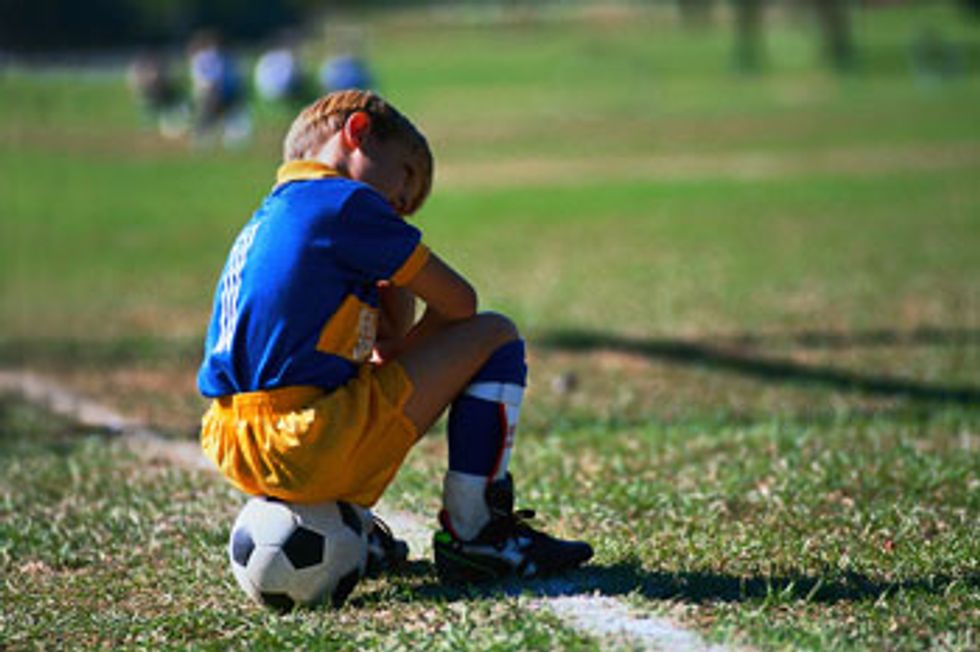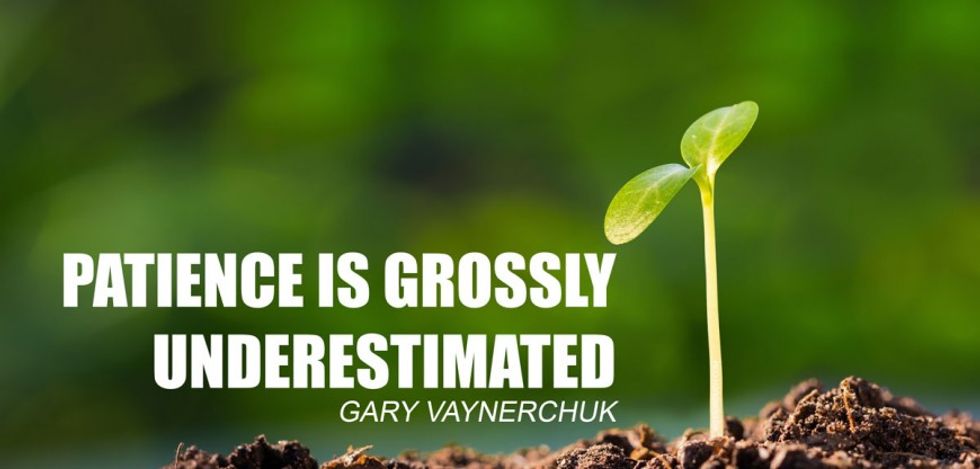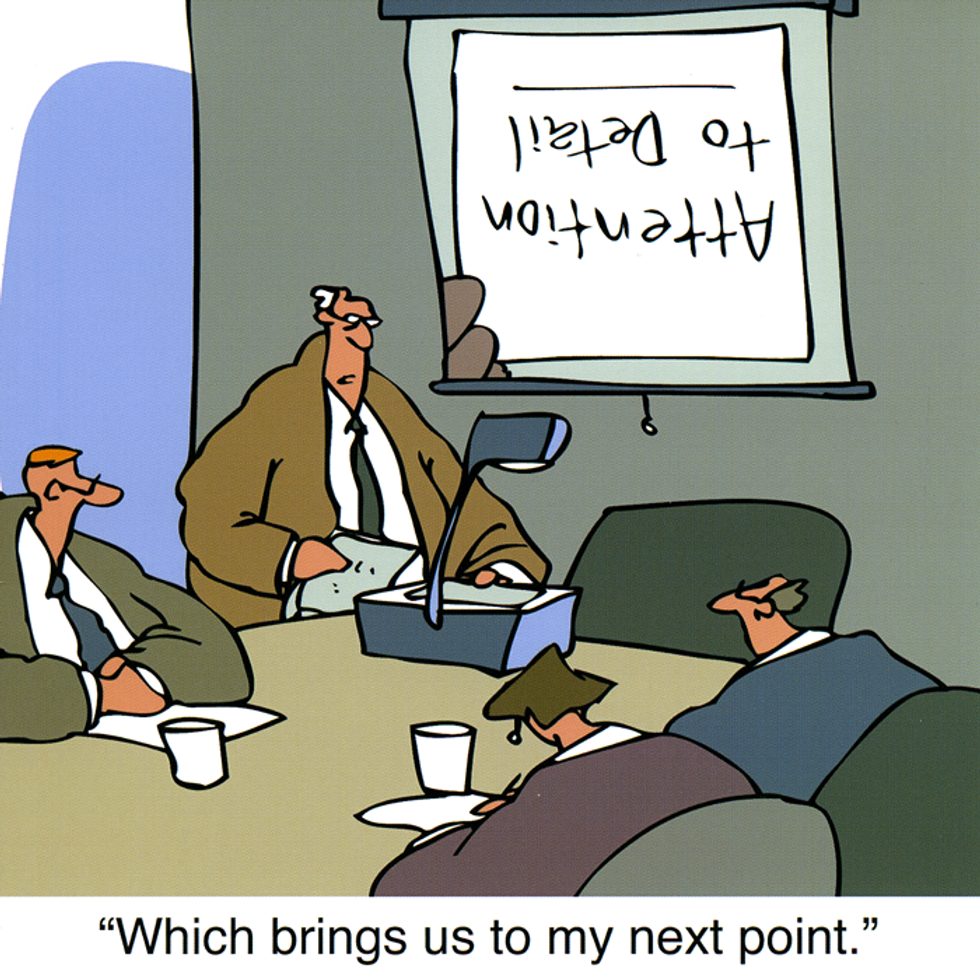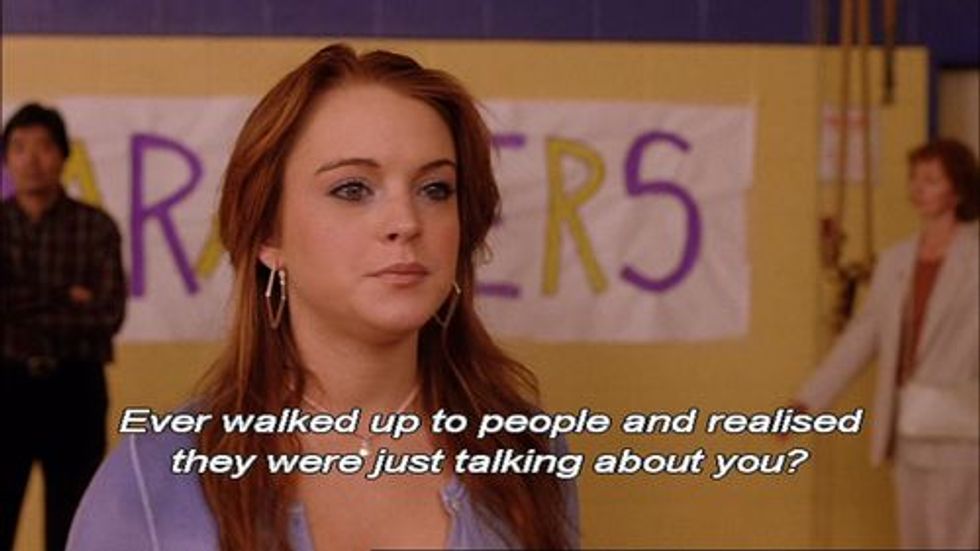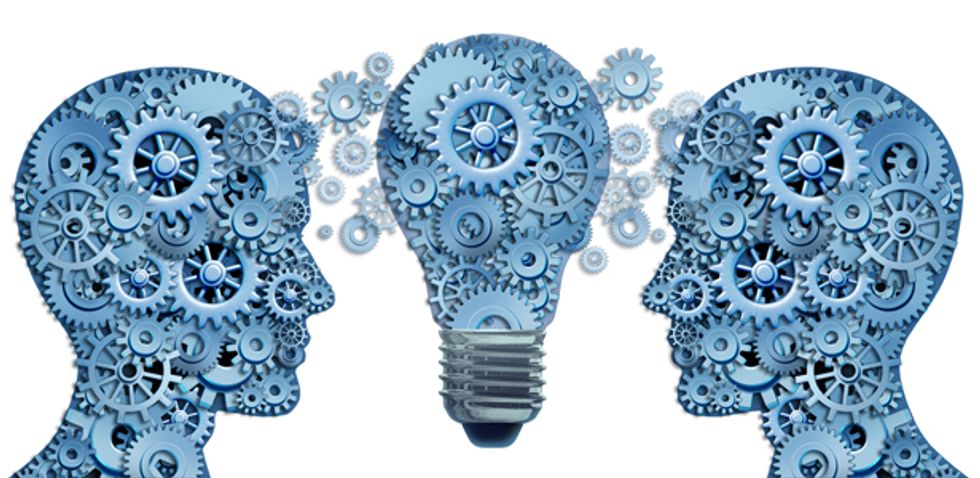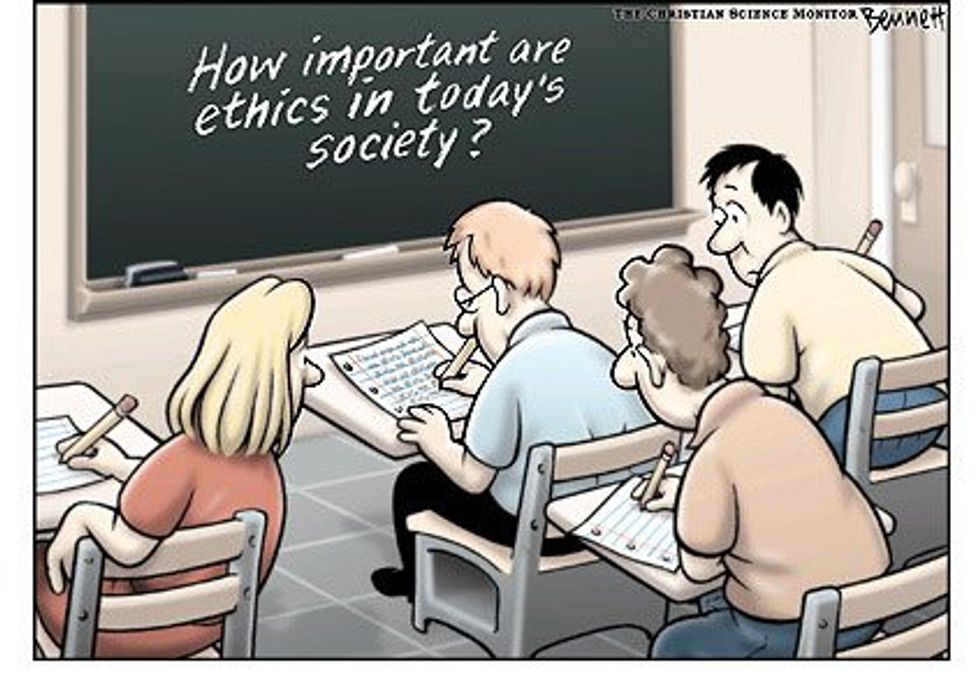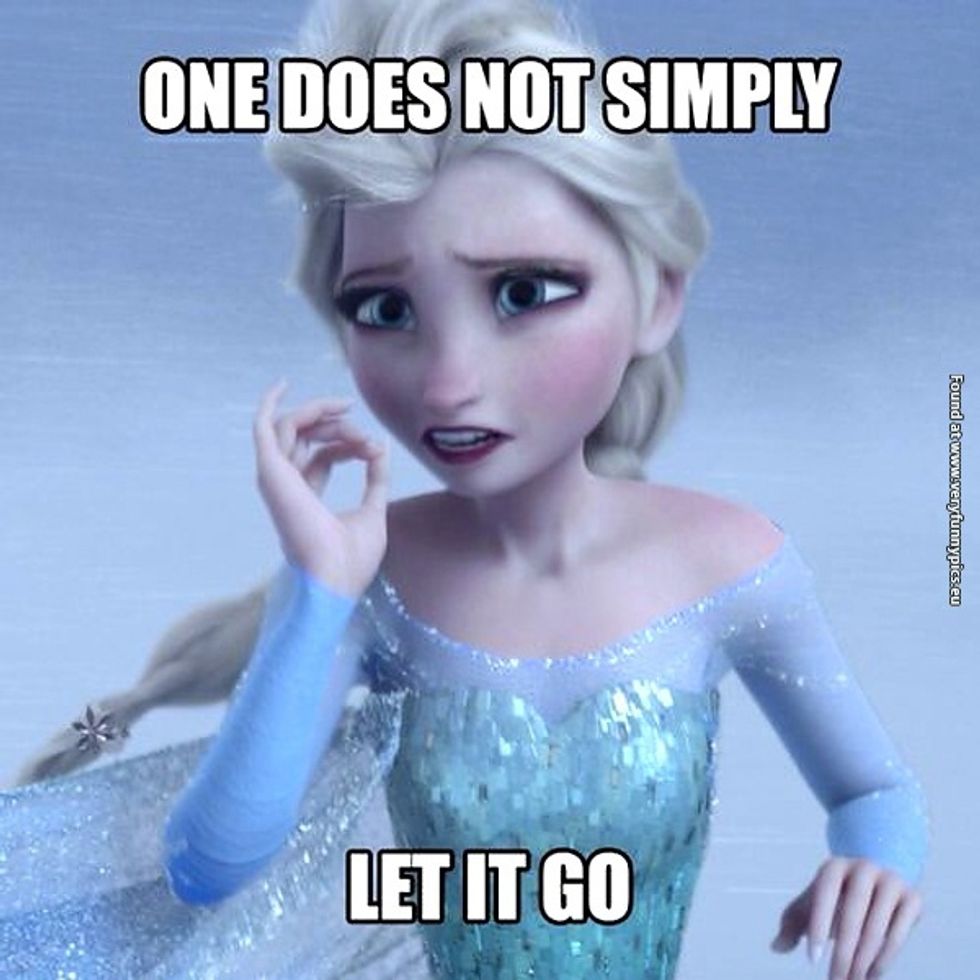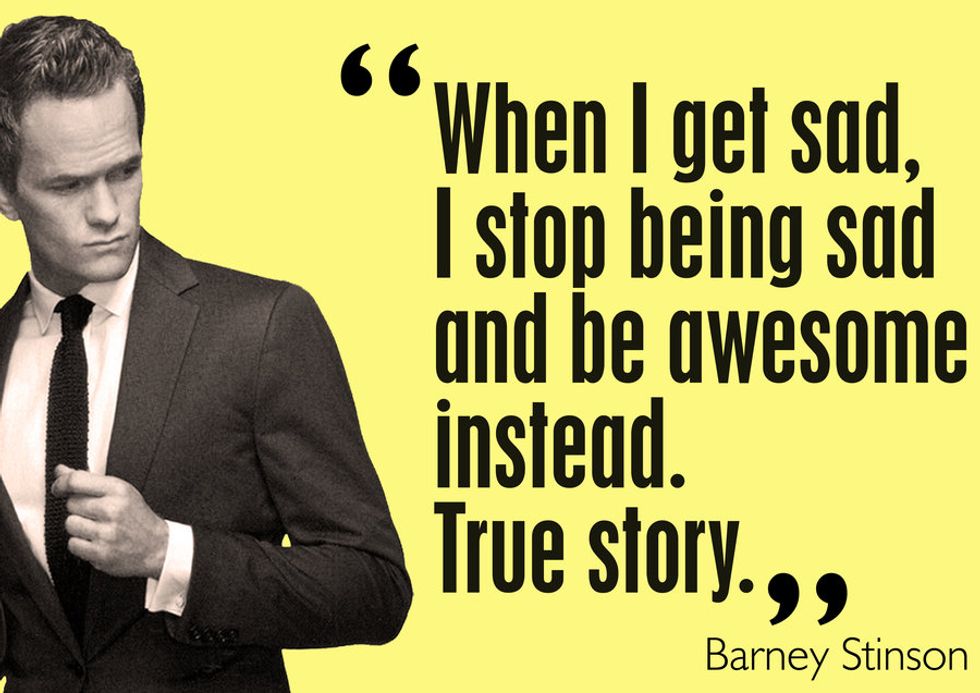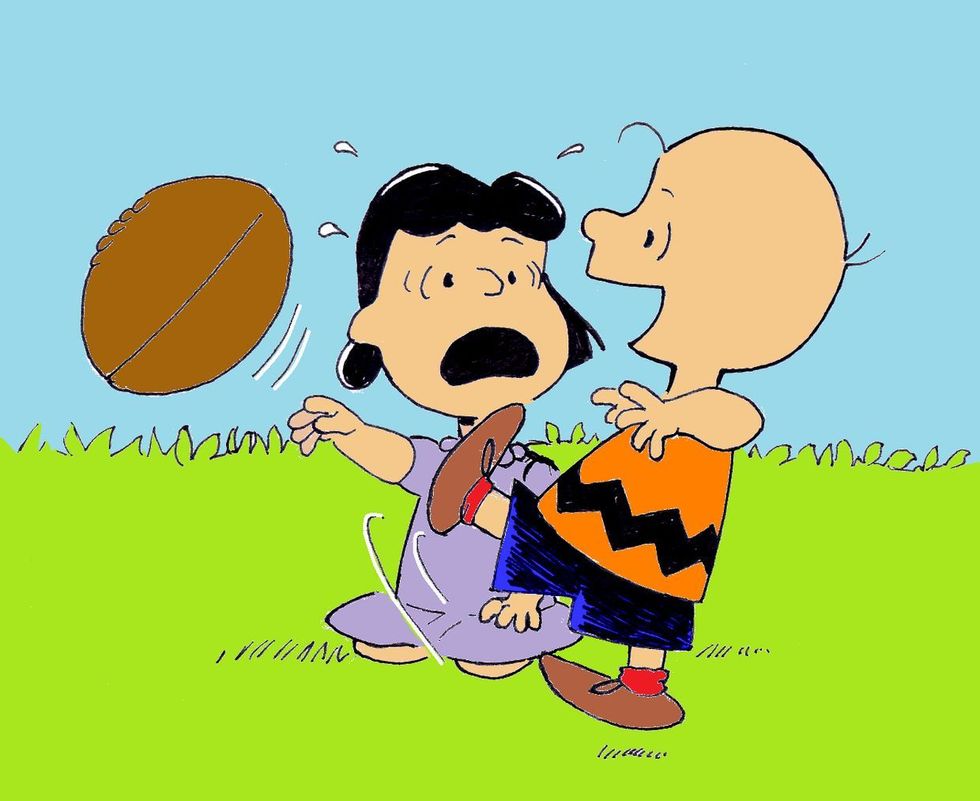Sports!
If you're reading this, chances are that you played them as a kid. A select few continue with sports into college, and are quite good at them. Others of us really identify with Charlie Brown's eternal struggle to finally kick that ball (It's all Lucy's fault by the way). So, for those of us who never did well in Little League, youth soccer, or basically any sport growing up, here are some pros and cons. I like giving the bad news first, so I'll start with a con and follow with pros, so we all finish this article feeling better. So, let's throw the ball and win the points!
CON: NEVER GETTING TO PLAY
For all that time you go to practices and games, if you're not good, you won't get to play much. My hometown soccer league and baseball league had rules that each team member must play in each game, so the coach wouldn't just put the best ones on the field. I got a lot of games with 3 innings in deep right field, where no baseballs land in an average baseball team of little kids, and in defense in soccer, where our offense would keep the ball on the opposite side anyway. We get a lot of experience warming benches and sitting in the grass, ever so close to that important white-painted line in the grass, but alas, on the wrong side of the line. However, with all this, we get...
PRO: PATIENCE
For all that time waiting on the sidelines or the bench for that one day when you can finally play, and maybe even score a goal or make it all the way around the bases to home, you get skilled at just that: waiting, something we all have to do in life. Whether we're waiting in line at the DMV, waiting in a commute to work, waiting on a waitlist for that one awesome class that fills your last gen-ed requirement senior year, waiting to meet that special someone, or just waiting to find out where we're going in that great adventure that is life, patience is very useful, and gets better the more we practice it (often by telling the differences between each individual blade of grass in the field). However, waiting for everything can sometimes lead us to...
CON: BOREDOM
When you're a little kid, and you see all the athletic kids on your team playing sportsball really well, while you're stuck in waiting, you get really bored, while everyone else gets to score a goal, steal a base, shoot a hoop, be in a sports montage, win the Triwizard Tournament, blow up the Death Star, catch the Golden Snitch, or defeat Slytherin and eventually the Death Eaters in a seven-movie series. Not playing is boring, so you come up with ways to avoid boredom, so you learn...
PRO: ATTENTION TO DETAIL
Remember that thing I said about the differences between blades of grass? When you're put so far into the outfield or on the sidelines for so long, you start noticing each individual blade of grass and you can tell the difference between each one. This way, you're less likely to end up missing some really important detail, or making a silly mistake in public presentations, like this employee above. While still a little kid, learning patience and attention to detail are useful skills, especially later, but as a kid, they can mean...
CON: YOU FEEL DIFFERENT AND EXCLUDED
So, you're THAT guy who's bad at sports (or, the new girl in town from Africa who became the most popular girl in school and then the most hated after as a result of a complex plan to overthrow Regina George), and you're also patient and have an attention to detail, leading to a decent attention span and studiousness. Meanwhile, most the athletic/popular kids are playing sports, being admired for it, having lots of friends, and being held to a higher regard than others, often undeservedly. Naturally, you feel really different, as if something's wrong with you. Being shy and socially awkward as a middle school student doesn't help with this either. You notice how children associate athleticism with awesomeness, and internalize it, hurting your self-esteem as a kid, that's a time in life when much of your self-worth is based on what others say about you. You want to feel better about yourself, so...
PRO: YOU HAVE MORE TIME TO THINK, AND THINK DEEPLY
When you're excluded in middle school and not devoted to sports, either, you have a lot more time to think. There's a lot that you can learn simply by reflecting on some questions, or by reading a book. Thinking makes you different from others in a good way, and can lead you toward maturity and becoming a more interesting, well-rounded person. You even realize that it's okay to not be good at sports and you're not weird for it, even if you don't understand or care about people's conversations about that Giants/Yankees/Hawks/Jets/Mets/Rangers/Sox/Lions/Tigers/Bears/Wizards of Oz/Sportsball game last night. You continue doing well in school, and understand stuff really well because you have time to. In fact, in the classroom, a lot of people start moving towards you and even point their desks to yours! And then...
CON: YOU BECOME ARROGANT, AND SOME PEOPLE ONLY LIKE YOU FOR YOUR HELP ON TESTS. YOU'RE PICKED LAST IN GYM
After pursuing academic excellence and being complimented and praised by teachers, I got a really big head, thinking I was better than everyone else because I felt smarter and had higher grades than most. Lots of people talked to me, usually around test time. Thinking it's a good thing to be helpful all the time, and that people would like me more and think I was cool, I had no problem letting people copy off me right before math and science homework was due, and sit near me during spelling tests and geography quizzes. I thought people liked me, and then gym class would come around, and I would be picked last for every sport, because I was bad at sports. I had thought that I'd be picked earlier cause I was everyone's friend on Fridays, during science tests. I was bad at sports, finally quit that, and still felt unfulfilled after studying a lot and getting a big head. What could I do that I would enjoy and get people to like me?
PRO: WHEN YOU STOP CARING WHAT OTHERS THINK, YOU FIND YOUR PASSIONS
When you stop caring what other people think, you stop trying to please the crowd and conform to them by doing what they want, so instead, you do what YOU want. And what did I want to do? What I wanted to do then was to sing and act cause those, unlike sports, seemed really fun to me, and what I wanted, and still want, for my future was to become a meteorologist and do the weather on TV. So, I still kept up my studies in school cause I found it all super fascinating, instead of for the reason of proving myself worthy of respect. I started singing and acting because I really liked it, and I've made many of my close friends from it. You still feel different from others, but not above them or below them, and you realize that all these journeys are going on with everyone, regardless of athleticism or popularity, and come to respect all types of people much more. You begin to let go of your opinions of yourself and jealousy of others, because we all have stuff going on, and everyone feels excluded sometimes, and it's fine and great to be different, cause the world would be super boring if everyone were the same. And yet...
CON: YOU'LL ALWAYS CARRY THAT MEMORY OF EXCLUSION
Whether you are rich, poor, white, black, Hispanic, Asian, in a city, on a farm, male, female, tall, short, Democratic, Republican, Catholic, Protestant, a different religion, atheist, or anywhere in the middle of any of those dozens of things I just mentioned, middle school probably wasn't a high point in you're life. Why? Because as kids, we learn to exclude each other, and we aren't generally mature enough to be nice and inclusive yet. So what do we do? We label people, and make rumors about them. Although I'm straighter than a highway on the flattest, most rural farmland in Nebraska, some people thought I was gay in middle school and joked about how I was going to go to an all-boys' high school, all this because I was bad at sports and liked being in musicals. It was really annoying, especially because it was inaccurate, but it was hurtful, and made me very sympathetic to actual LGBTQ+ people as I grew older, for how poorly were they treated growing up? Probably far worse than I had been, for being who they were. Exclusion is never fun, and it sticks with you. Perhaps my greatest fear in life is that slowly, people would abandon me and exclude me from everything again, and I would repeat the loneliness of middle school all over, but for the rest of my life, without knowing how to get true friends again.
BIG FINAL PROS: ACHIEVE SYMPATHY FOR EVERYONE, FIND TRUE FRIENDS, LEARN IT'S OK TO BE SAD, LEAD A FULFILLING LIFE
Contrary to Barney's quote, awesome people can still be sad, and sad people can still be awesome. There's no shame in it, and sadness lets us learn empathy, so we can console those who've been in bad places before. It's not about trying to impress other people by overachieving enough to be liked, because that leads to loneliness and arrogance. Also, it's not about feeling bad about yourself or bullying others either. That helps nobody. Whoever you are, we have all had these feelings above, even if we're fantastic at sports, or whatever is the activity everyone is supposed to be good at to be popular in middle school. Soon enough, we find our true friends as we discover who we are, as we pull back the layers of arrogance and fear that we've built up over the years. As people come and go, we change, and that's alright; change is a necessary part of life, and it can be for the better, leading us to new, great experiences. When we discover our passions and think less about what the crowd thinks of us, we discover who we really are, what we can do to make a difference in this world, and all the awesome experiences we get out of this world. Maybe we never literally kick that football and make a field goal, and maybe Charlie Brown never does either, but one day, we all can find what we truly want in life, and kick the football of life right between the goalposts of attainment.


